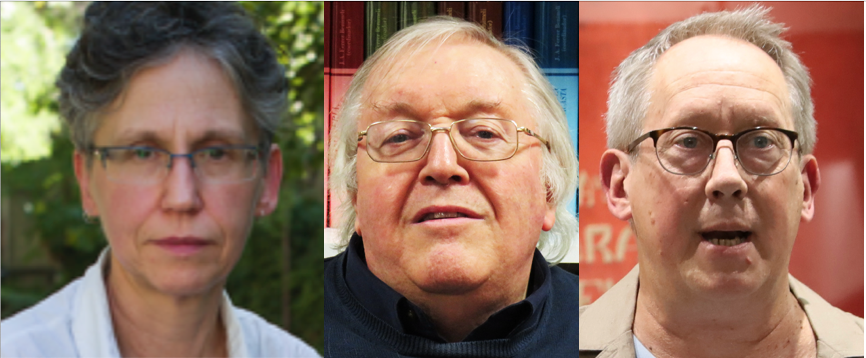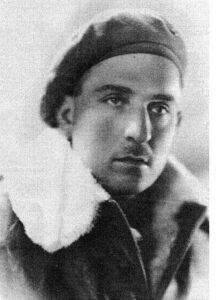International Brigade Memorial Trust
This year’s Len Crome Memorial Conference will be an online conversation between leading historians of the Spanish Civil War, Helen Graham and Paul Preston, with Richard Baxell in the chair.
Organised by the IBMT, the free event takes place on Saturday 11 November 2023 from 2pm-3.30pm. Register here.
It is generally understood that the war of 1936-9 in Spain was a Europe-wide conflict, in terms of state power politics, the rise of fascism and ordinary people’s anti-fascist engagement. This phenomenon has been explained by a number of historians, including Paul Preston and Helen Graham as a ‘European civil war’.
In this conversation with Richard Baxell, they chart the war’s long roots. These go back at least to the First World War – not only with attempts to wipe out the Bolshevik revolution of 1917, but also to double down on any socially levelling reform inside the developed industrial heartlands of Europe, including Britain.

From left: Helen Graham, Paul Preston and Richard Baxell.
The First World War had meant the massive mobilisation of ordinary people across the continent as soldiers and home-front workers, and afterwards they demanded not only political change but also levelling social change. New industrial cities were growing up or expanding everywhere and were perceived as a threat to the pre-1914 power elites of Europe/Britain, who still hoped for ‘business as usual’ after 1918.
It is this picture which explains why, when Spain’s military tried to stifle the country’s new, democratically elected and socially reforming government, it wasn’t only Fascist Italy and Nazi Germany that wanted them to win, but also the British establishment and much of France’s too.
Paul Preston and Helen Graham and Richard Baxell will trace these developments to show how they led to a situation where not only fascist dictatorships but also democratic states in Europe largely preferred a Franco victory in the Spanish war.
In the end this would come with a Nazi price tag, one that soon forced Britain and France to fight another world war, the one that completed the destruction of their imperial pre-eminence in the world.
Given that the Second World War might potentially have been avoided, had Britain especially made different decisions over Spain, then we can also say that the war of 1936-39 wasn’t only European in its reach, but global too.

Len Crome, born Lazar Krom in 1909 in Latvia, then part of Imperial Russia, trained as a doctor in Edinburgh and was a GP in Blackburn in 1936 when he volunteered to go to Spain. He rose to the rank of major in the Spanish People’s Army and headed the medical services of the mainly English-speaking 15th Brigade and the mainly German-speaking 11th Brigade. He served in the British Army during the Second World War, earning a Military Cross for his bravery at Monte Cassino. After the war he became an eminent pathologist in London and, until his death in 2001, was the chair of the International Brigade Association.
